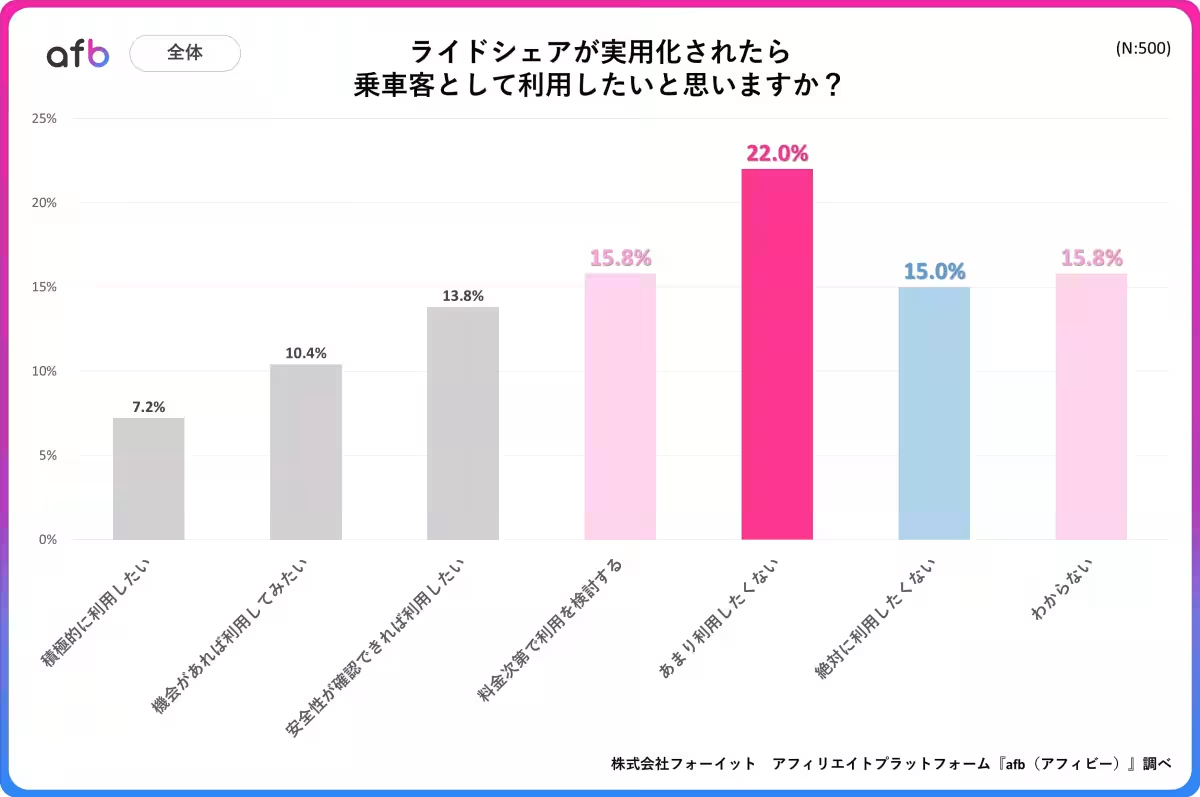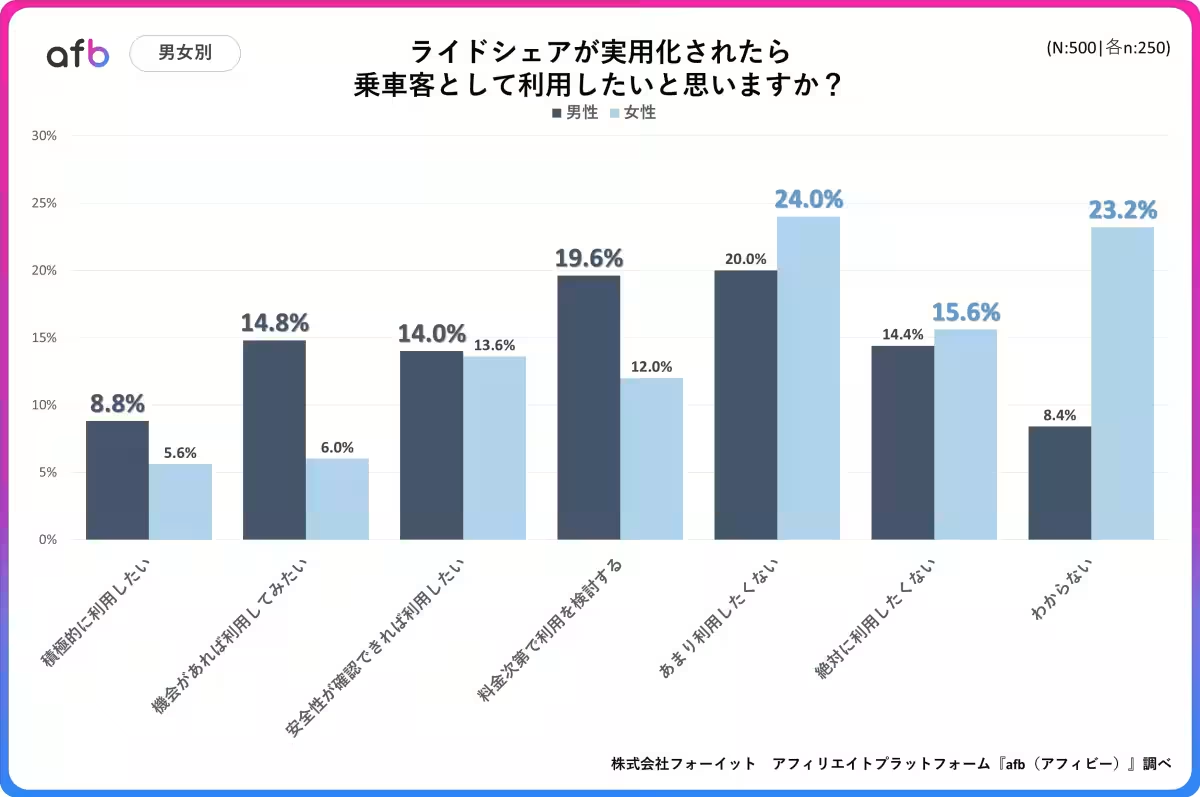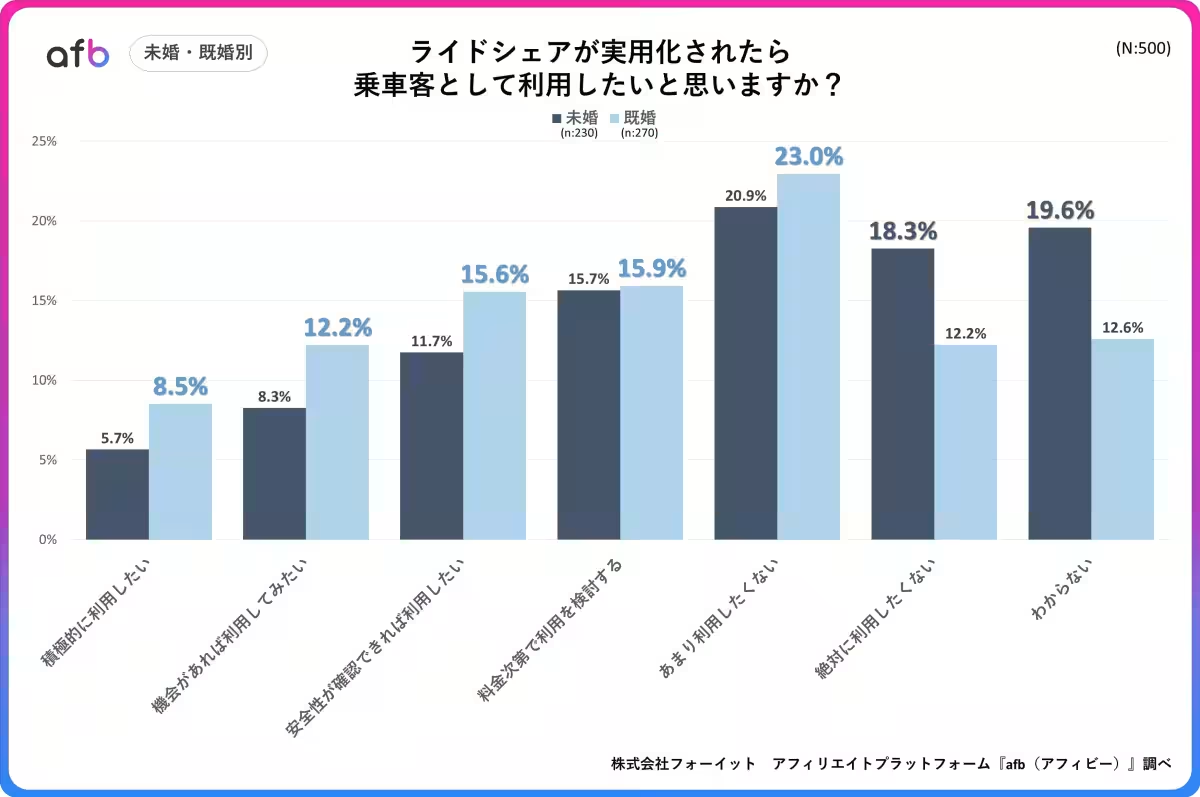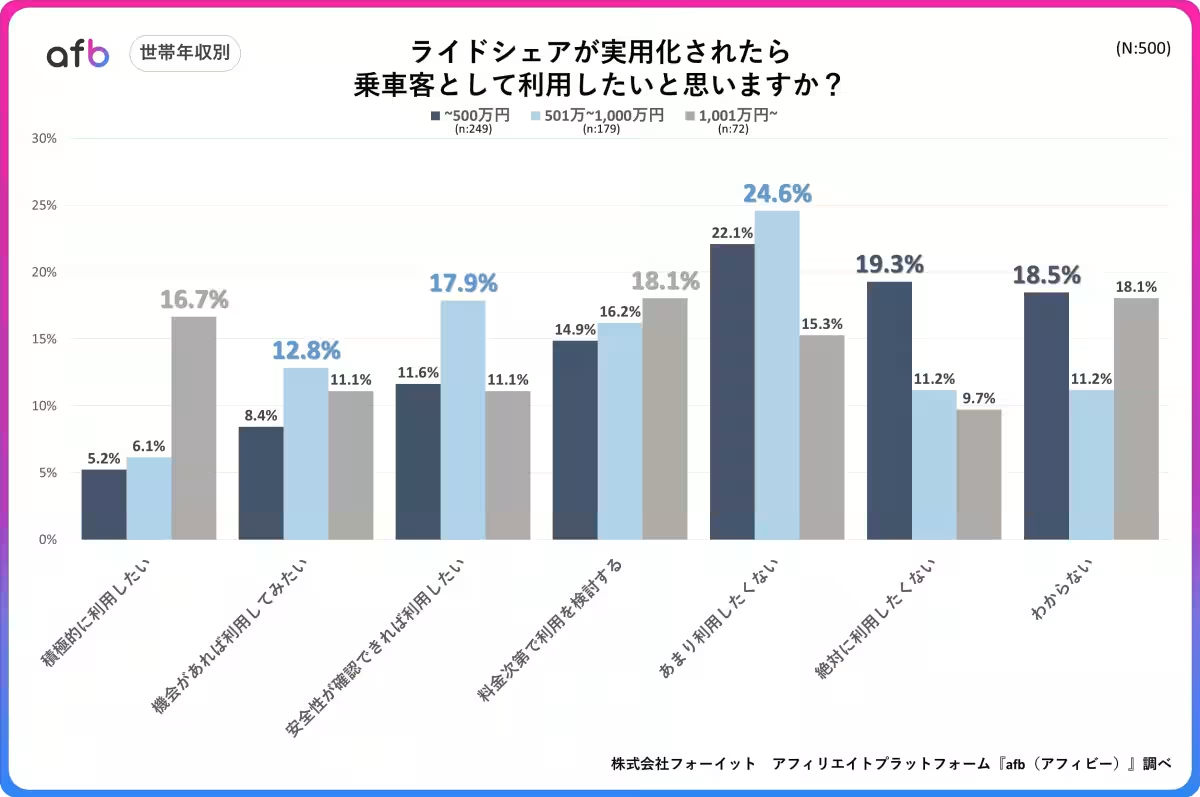

Are High-Income Individuals More Open to Ride-Sharing Services? A Survey Analysis
Understanding the Attitudes Towards Ride-Sharing in Japan
Ride-sharing has been gaining traction in Japan as recent discussions on the legal framework for such services have created a favorable environment for their adoption. To gauge residents' sentiments, For-It Co., a company that operates the affiliate platform "afb," conducted a comprehensive survey across Japan. The results provide insight into public expectations and apprehensions regarding ride-sharing, particularly focusing on different demographics.
Survey Overview
The survey targeted a diverse group of 500 individuals aged between 20 and 69 from various regions of Japan. Conducted via online research on February 14, 2025, the respondents were asked whether they would use ride-sharing services if they became operational. The survey aimed to explore factors such as gender, income, and marital status, offering a clear view of the varying attitudes towards this emerging transportation method.
Key Question
The central question posed to respondents was whether they would be willing to utilize ride-sharing services:
1. I would actively want to use it.
2. I would like to try it if given the chance.
3. I would use it if safety can be assured.
4. I would consider it depending on the cost.
5. I would prefer not to use it much.
6. I would definitely not want to use it.
7. I am unsure.
General Findings
The results revealed that approximately 31.4% of respondents expressed a positive intention to use ride-sharing services, with the most common response being a reluctance to use them. Specifically, 22% indicated they would prefer not to use such services, while another 15.8% were uncertain, indicating a cautiously optimistic outlook overall.
Gender Differences
An analysis of the data by gender showed that men were more likely to express a desire to use ride-sharing services compared to women. This trend suggests that men are more comfortable with the idea of hailing a ride from a stranger, while women expressed higher levels of anxiety about safety—an understandable concern given the potential for crime or harassment associated with being driven by unknown individuals. For women, traditional taxi services offer more reassurance due to established safety protocols. However, a significant portion—13.6%—of women indicated they would consider using ride-sharing if their safety concerns were addressed.
Marital Status Insights
The survey also highlighted attitudes based on marital status. Married individuals showed greater openness to ride-sharing compared to unmarried individuals, who expressed significant reservations. This trend may be linked to a higher likelihood of families utilizing such services for activities like transporting children or relatives. Furthermore, urban areas, where personal vehicles may not be as common, could see more pronounced interest from married parents, particularly if municipalities partner with ride-sharing platforms to ensure safety measures are in place.
Income Levels and Ride-Sharing Intentions
Perhaps most notably, the survey uncovered a correlation between household income and openness to ride-sharing. Individuals with an annual income of over ¥10 million were significantly more enthusiastic, with approximately 16.7% affirming they would actively seek to use these services. This demographic appears willing to invest in convenience, valuing time savings and experiences over mere cost considerations.
Conclusion
The findings of this survey reflect the growing interest in ride-sharing services in Japan, alongside the challenges that remain. While many express a cautious optimism, particularly around safety, potential users' varying responses indicate a need for effective communication and reassurance from ride-sharing companies. As taxi driver shortages persist, the role of ride-sharing in Japan's transportation landscape is likely to expand, especially as policymakers address legal and safety concerns.
For further information about For-It and the "afb" affiliate platform, visit afb's website.






Topics Consumer Products & Retail)










【About Using Articles】
You can freely use the title and article content by linking to the page where the article is posted.
※ Images cannot be used.
【About Links】
Links are free to use.